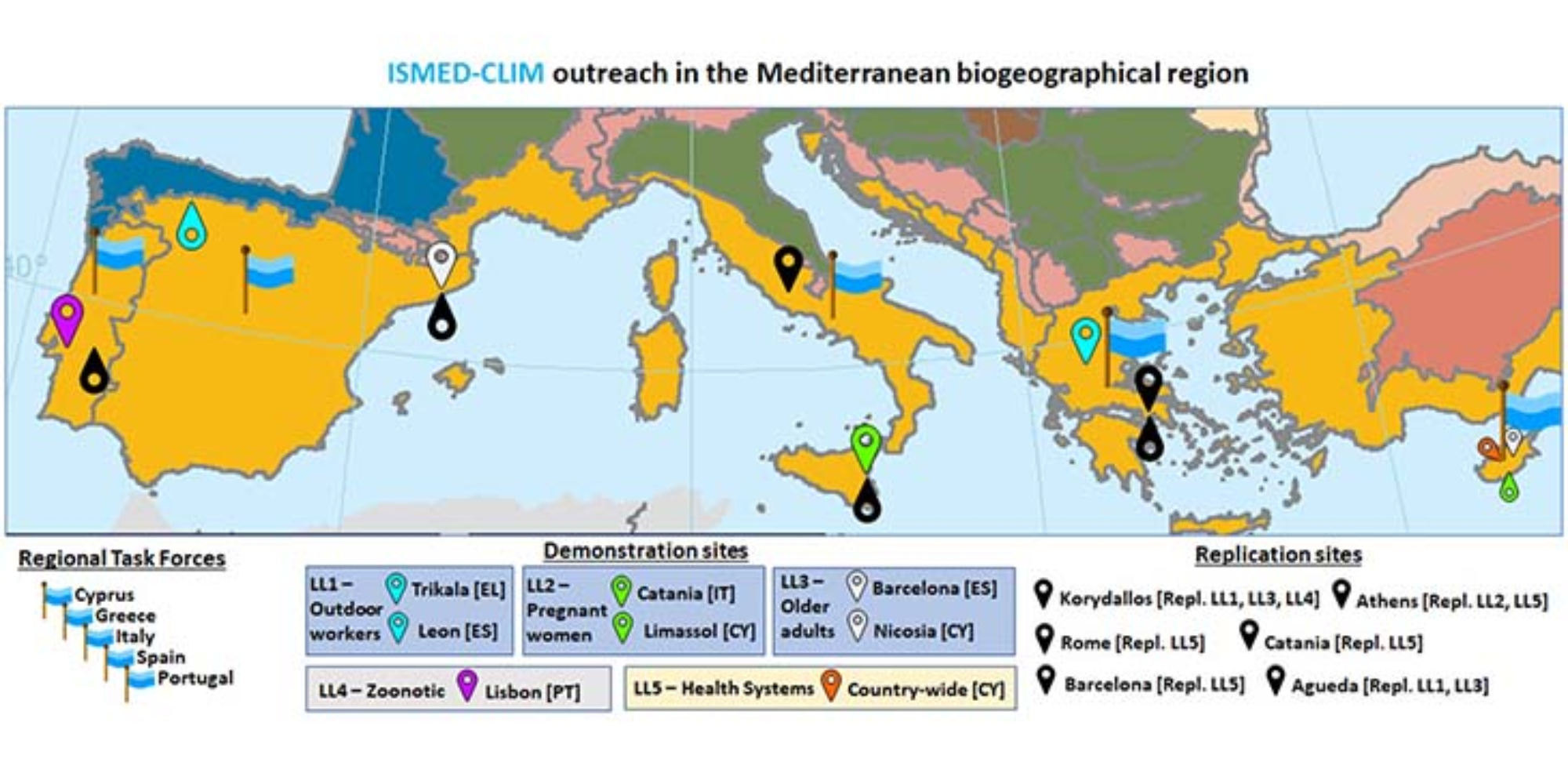More than 100 scientists and representatives from 11 countries took part in the inaugural meeting held at the University of Cyprus
The Inaugural Event of the new large-scale research project ISMED-CLIM from the HORIZON EUROPE programme, which was awarded to the University of Cyprus with a total budget of €6.5 million, took place from 4-5 November 2024 at the Sciaklio Centre for Clinical Medicine in Nicosia.
The Inaugural Event was attended by more than 100 scientists and representatives of social, political and academic institutions from 11 countries participating in the research project. The project is entitled ‘Innovative Solutions across the Mediterranean for mitigating climate change-related health risks and enhancing health system resilience’ and aims to develop innovative solutions to address climate change-related health risks for vulnerable population groups and national health systems in the Mediterranean countries, Cyprus, Greece, Italy, Italy, Spain and Portugal.
In her speech at the opening event, Dr Claudia Di Napoli on behalf of the European Centre for Medium-Range Weather Forecasts ECMWF noted that the Mediterranean region is located on the border between the temperate and dry climate zones and is warming 20% faster than the global average. He stressed that newer alarming data show that climate change is accelerating beyond projections, citing that the summer of 2024 in Europe was the hottest summer ever recorded with temperatures +1.54°C above the climate average, to conclude that it is imperative that weather forecasts are translated into warnings, which must lead to concrete actions and measures to counter heatwaves.
An important intervention at the event was made by Dr. Francesca de’Donato, from the Department of Epidemiology of the Health Services of Rome, who noted that between 2030 and 2050, climate change is expected to cause around 250,000 additional deaths per year, from malnutrition, malaria, diarrhoea and heat stress. The cost of direct health damages is estimated to be between $2-4 billion in the US/year by 2030. Regions with inadequate health infrastructure – particularly in developing countries – will be the least able to cope without assistance to prepare and respond.
The new research project was presented by Professor Dr Panagiotis Yialluros, who coordinates ISMED-CLIM on behalf of the University of Cyprus Medical School. The aim of the ISMED-CLIM project is to engage and mobilise regional policy makers, social actors and citizens in the implementation of mitigation solutions.
Among the solutions that the new ambitious programme will evaluate are:
- Interventions to reduce extreme climate exposures and related health impacts on vulnerable groups.
- An integrated surveillance tool for high-risk professionals to manage zoonotic disease prevention actions and interventions.
- Adaptation and adoption of evidence-based practices and prototype tools to increase the preparedness and capacity of health systems in the Mediterranean region to provide safe and effective care to citizens in the context of ongoing climate change.
- Develop knowledge, policies, processes and tools to effectively replicate these solutions and promote beneficial systemic reforms in environmental and public health.
For more information visit the project’s Social Media pages (Linkedin platform and X platform) or contact the Respiratory Physiology Laboratory of the University of Cyprus Medical School at 22895243.
Source: University of Cyprus | Latest news (https://shorturl.at/B66ZT)
